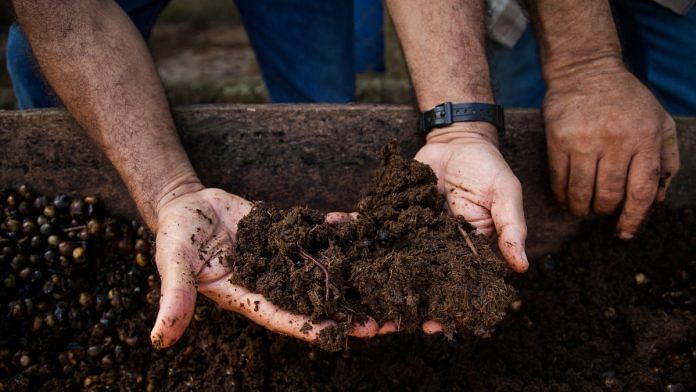New Delhi: A fresh crisis seems to be brewing between Sri Lanka and China after the Chinese Embassy in the island nation Saturday declared that the state-owned People’s Bank of Sri Lanka has been blacklisted over its failure to make a payment for imported fertilisers. Following a court order, the Sri Lankan bank withheld the payment to China’s Qingdao Seawin Biotech Group Co Ltd after fertiliser samples were allegedly found to host harmful bacteria.
At the heart of this controversy is Sri Lanka’s sudden decision this April to make a complete shift to organic fertilisers, ban imports of chemical fertilisers, and use domestic bio-fertilisers. Among other things, the decision was believed to be a means to cushion Sri Lanka’s dwindling foreign reserves, which have taken a hit in light of the pandemic. It was expected to save the government around $400 million.
The decision led to protests by farmers, who complained they didn’t have time to make a switch, and soaring food prices.
The prices of daily food items like sugar, rice and onions soared over twice, with sugar even touching record Rs 200/kg; and kerosene oil and cooking gas prices surged. There were also fears of a hit to production of other crucial export crops like cinnamon, pepper, rubber, cardamom, cloves, nutmeg, betel leaves, cocoa, and vanilla.
The country was subsequently forced to allow imports of organic fertilisers as it currently does not have the capacity to produce as much organic fertiliser as its agricultural sector requires.
It was set to import 99,000 metric tonnes of organic fertiliser at a cost of $63 million from Qingdao Seawin Biotech Group Co Ltd. However, the consignment was rejected after an analysis reportedly found it to be “tainted”.
The developments have again put the spotlight on the island nation’s overnight decision to shift to complete organic farming.
Also read: It’s premium Darjeeling Tea, but from Nepal: How ‘fake’ tea is threatening the pride of India
Why Sri Lanka needs fertilisers
Many key crops in Sri Lanka depend on heavy use of chemical input for cultivation, with the highest dependency in paddy at 94 per cent, followed by tea and rubber at 89 per cent each.
This means that Sri Lanka needs a large domestic production of organic fertilisers and bio-fertilisers after its flip to organic farming. However, the situation is bleak on that front.
According to estimates, the country generates only about 3,500 tonnes of municipal organic waste every day. From this, only 2-3 million tonnes of compost can be produced on an annual basis.
However, just organic paddy cultivation requires nearly 4 million tonnes of compost annually at a rate of 5 tonnes per hectare. For tea plantations, the demand for organic manure could be another 3 million tonnes.
Currently, Sri Lanka produces only 0.22 million tonnes of compost through both Department of Agriculture-registered producers and municipal councils. As a result, the island nation now faces a severe challenge to produce organic fertilisers.
Imports cause deep concerns
In August, Sri Lanka allocated $3.8 billion for organic fertiliser purchase by importing certain nutrients that are organically derived, namely nitrogen, phosphorous, and potassium.
However, the country only had few options such as China and India to import cheap organic fertiliser to save its agricultural produce.
The Sri Lankan agriculture ministry selected China’s Qingdao Seawin Biotech Group Co. Ltd through open bidding to supply organic fertiliser.
Two samples brought to the country and tested by the Sri Lanka Standard Institutions and National Plant Quarantine Service and Sri Lanka Atomic Energy Board were found to have microorganisms, pathogens, and diseases harmful to the soil, plants, and humans.
Sri Lankan scientists warned that China’s organic fertiliser would be an agricultural disaster as the samples were found to be infected with Erwinia, a notorious plant pathogen that causes severe post-harvest losses in crops.
“It also affects root crops that are economically important and are grown in large amounts. Effect of this pathogen could be found even during the post-harvest,” Devika de Costa, professor of plant protection attached to the University of Peradeniya, a public university in Sri Lanka, told IANS.
Farm activists also complained that harmful species of bacteria were contained in the fertiliser samples.
Chandima Wijegunawardana, a Sri Lankan lecturer attached to Princess Nourah Bint Abdulrahman University in Riyadh, told IANS, “Ideologically if this so-called organic fertiliser dumps here, Sri Lankans could be genetically changed.”
As Sri Lanka rejected the consignment this month, China blacklisted People’s Bank of Sri Lanka, citing a “vicious” Letter of Credit “default”, reported The Hindu.
Beijing reasoned that the Sri Lankan bank’s decision caused huge losses. However, the bank said it was only following court orders prohibiting it from making payments.
Also read: Indian tea is world famous, but our exports are still behind Kenya, China and Sri Lanka



